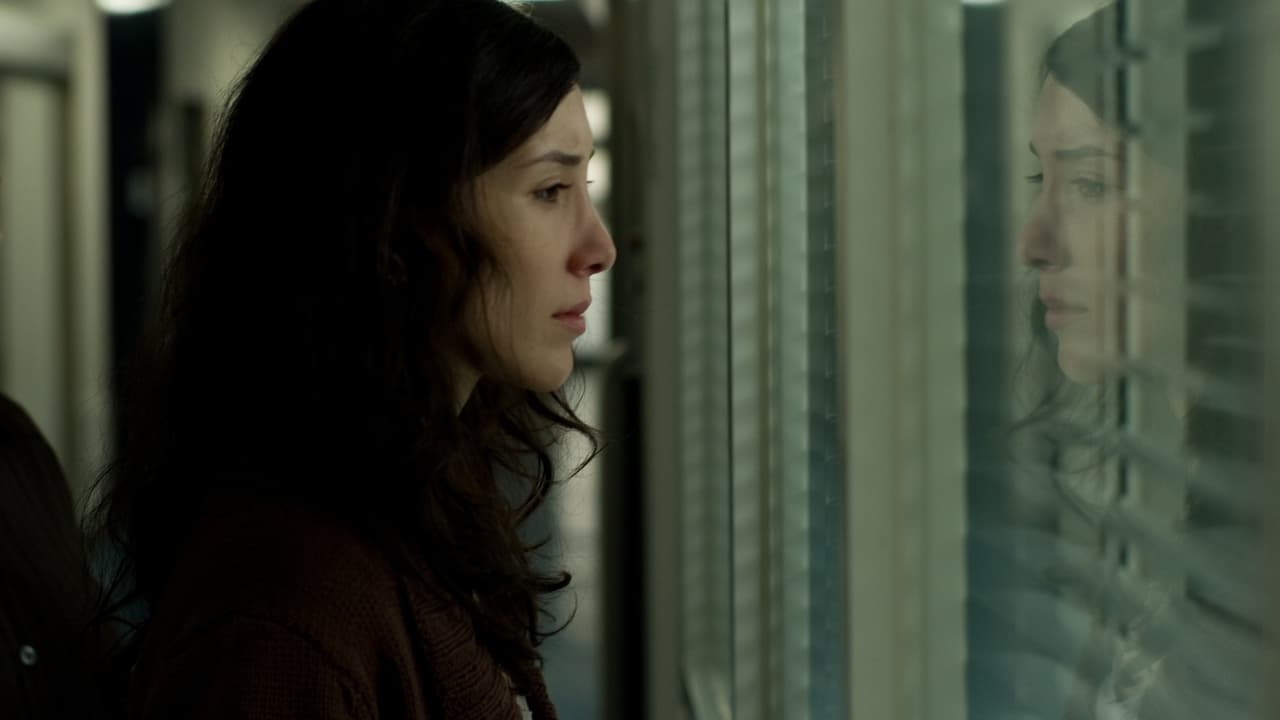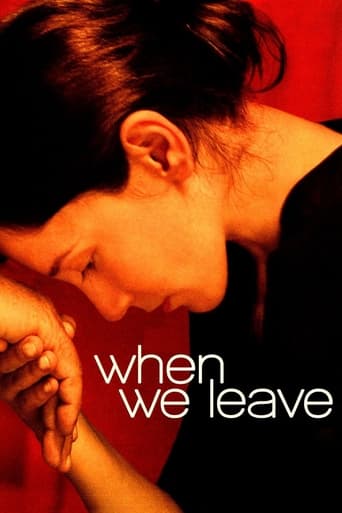Boobirt
Stylish but barely mediocre overall
Nessieldwi
Very interesting film. Was caught on the premise when seeing the trailer but unsure as to what the outcome would be for the showing. As it turns out, it was a very good film.
Gurlyndrobb
While it doesn't offer any answers, it both thrills and makes you think.
Sienna-Rose Mclaughlin
The movie really just wants to entertain people.
SnoopyStyle
Umay leaves her abusive husband Kemal in Istanbul with her son Cem to go home to Germany. Her father Kader is concerned about the family's honor. The older brother Mehmet is angry. The youngest brother Acar is scared but kind. Kemal rejects Umay but wants his son Cem back. As Kader and Mehmet try to force the situation, Umay calls the police and she escapes with Cem to a women's shelter. She finds a job with a supportive boss and a new boyfriend. Her younger sister Rana is rejected by her fiancee's father due to the situation. Rana tells her mother that she's desperate to marry Duran because she's secretly pregnant. Kader has to pay off the father to get them married. Umay shows up unexpectedly at the wedding and has a meltdown. Even Acar is forced to confront the lost of family honor.The portrait of the lost of family honor is devastating. The pressure feels real. The need for Umay to reconnect with her family does feel unreasonable and excessive. I doubt a reasonable Umay would show up at the wedding. After the wedding, it seems impossible for her to go to the hospital especially carrying her son with her. Then the final scene has too many twists. It only accentuates the twisty manufactured nature of the writing. Writer/director Feo Aladag needs to tone down some of the more melodramatic developments in the last act.
Horst in Translation (filmreviews@web.de)
"Die Fremde" or "When We Leave" is a German/Turkish production from 6 years ago. The movie won awards all over the world and was picked as Germany's submission to the Academy Award for the foreign language category. But it was not chosen for a nomination sadly, got snubbed just like "The Edge of Heaven" a couple years earlier. I guess German films with this multi-cultural background just are not to the Academy's liking. Well.. it is their loss as these 110 minutes here are an absolutely outstanding achievement and a truly positive step into filmmaking by writer and director Feo Aladag. And equally much praise from me goes to lead actress Sibel Kekilli, who is in basically every scene of the film and delivers a stunning portrayal as a young Turkish woman/mother whose "terrible" actions (she got divorced, has a German boyfriend, won't give up on her son...) resulted in her being humiliated by her family and becoming an outcast. Yet it is not so easy as she does not want to give up on them and there are moments when they don't seem to give up on her either. It is nice to see that performances like these got her into "Game of Thrones", even if I am not a fan of the series. I hope she can keep having a great career, also abroad. She deserves all the praise and accolades she gets.Umay, the main character, gets humiliated emotionally and occasionally also physically from start to finish here. Kekilli delivers a truly heartbreaking performance of a modern young woman whose love for her son is too big to be able to accept stupid, nonsensical Turkish customs in terms of gender roles. If the man does not want to be with the woman any more, it is all the woman's fault and she has brought shame upon her family. The concept of "Ehrenmord" (honor killings) is just the negative icing on the cake and it is unbelievable that this also still exists today. With stuff like this, it is really hard to feel tolerance and sympathy for immigrants. Of course, I am only referring to these that still believe in the concepts I mentioned before. With the ending, you can argue if a less tragic outcome, maybe with the film ending the moment her brother runs away, may have been better, but it's good both ways I think. Overall, this film is a masterpiece and there is certainly some gigantic irony to the German Film Awards preferring the extremely forgettable "Storm" with a female lead that does not have 1% of Kekilli's greatness. Anyway, "Die Fremde" is an absolute must-see. Highly recommended.
Richard Tasgal (tasgal)
This kind of story is only really interesting if it is true to life. I don't know what the day to day texture of life tends to be like for Turks in Germany -- I don't even know if the characters are ethnic Turks or Kurds -- so I have to trust the movie. But I don't know whether I should. Yes, the outlines of the plot come from a true story. I can forgive the movie for ignoring that Germany and Turkey have both signed the Hague Abduction Convention, which would allow the father to get his son back. Yes, many parts of the Muslim world share the sense that honor is tied to being able to control one's women, and honor killings happen. Yes, some children in a family may acculturate differently than others. And, yes, it was nuanced. But that does not necessarily mean that the nuances are there in life rather than only in the director's head. Ingmar Bergman comes to mind, and Amos Gitai (some of whose movies I somehow forced myself to watch all the way through). My suspicions were also raised by When We Leave's contemplative quiet, which is common in this kind of art movie but not in real life. But, let me re-emphasize, I don't really know that the picture is a fantasy, I only suspect.
Red-125
Die Fremde (2010) was shown in the U.S. with the title "When We Leave." The film is written and directed by Feo Aladag, a German woman who is very familiar with the culture of Turkish families living in Germany.Umay, played with outstanding skill by Sibel Kekilli, is a young woman who grew up in Germany, but who lives with her husband and his family in Turkey. Umay lives within the strictly patriarchal traditional society of Turkey, which includes--in her case--being beaten by her husband. She takes her young son with her and escapes to Germany, where her family lives.The remainder of the movie concerns Umay's attempt to reintegrate herself into her family, and into mainstream German culture. Although she is treated well by the Germans with whom she has contact, she is barely tolerated--at best--by her family.When Umay learns that her brother is planning to kidnap her son and send him back to Turkey, she leaves again, and goes to what appears to be a shelter for battered women.Although she is treated well at the shelter, she cannot bear to cut herself off from her family. She keeps returning, and keeps being rejected, sometimes psychologically, sometimes physically. She keeps hoping that their (real) love for her will overcome the humiliation they feel because her behavior is considered shameful.The acting in this film is outstanding, and there are no weak links. However, I have to single out the young boy--Cem--played by Nizam Schiller. He is uncannily believable as a child who can't understand why he must move, and then move again, and yet again.We saw this film at the excellent Little Theatre in Rochester, NY. However, it will do well on DVD. Incidentally, the original title "Die Fremde," means "strangers" or "foreigners." This title is more accurate than the U.S. title, because Umay and Cem are foreigners wherever they go.This film is relatively long, and very grim. There is one scene of high spirits as Umay and a young German man ride through Berlin on a motorbike, but it doesn't ring true. All the rest is grim, grimmer, and, ultimately, grimmest.I'm not going to reveal the ending. The reason I labeled this review as a spoiler--a first for me--is that potential viewers should know that this is a great film, but it is extremely depressing. You can't walk out of the theater, or get to the end of the DVD, and just move on. So it's a "must-see" film, but only if you can handle the emotional consequences.

